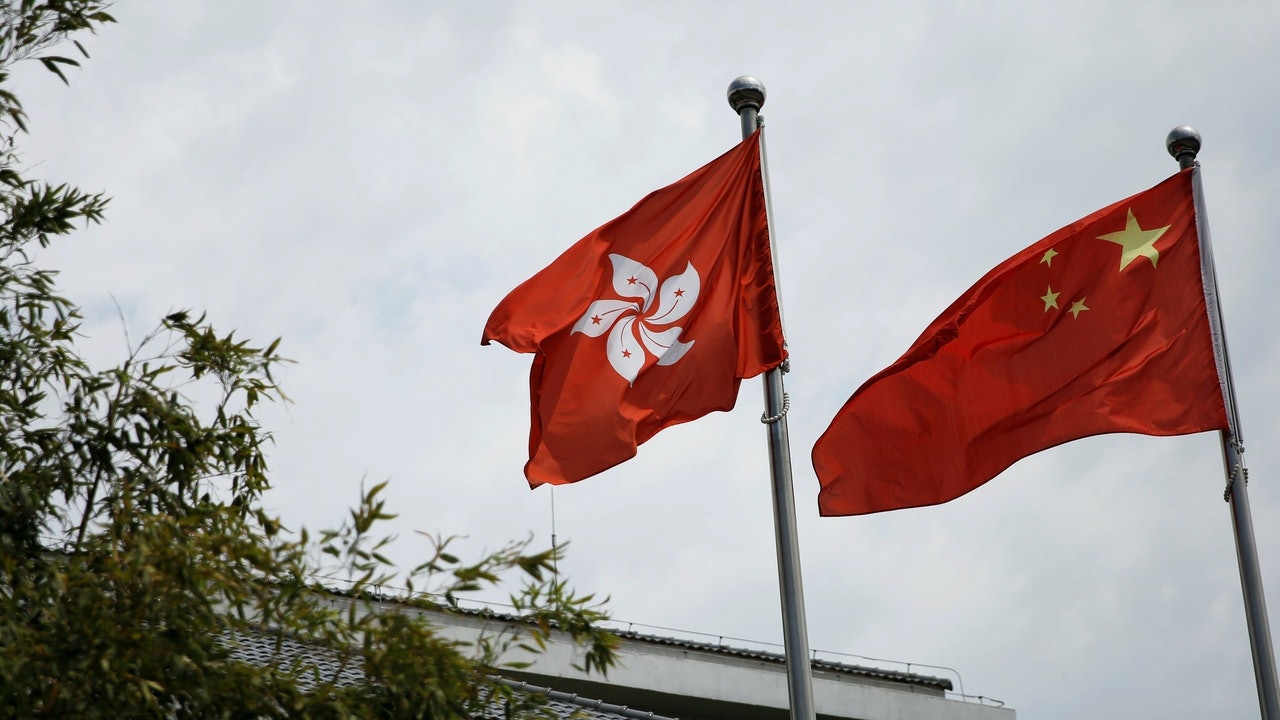Political situation
Written by: Wu Zhuoan
2020-06-30 23:30
Last update date: 2020-06-30 23:30The National People's Congress Standing Committee meeting today (30th) passed the draft "Hong Kong version of the National Security Law." The detailed provisions have finally been exposed, including the retrospective issue.
Article 44 of Chapter 4 of the National Security Act of the Minato District stipulates that the Chief Executive shall appoint a number of judges from among magistrates, district court judges, judges of the Court of First Instance of the High Court, judges of the Court of Appeal and judges of the Court of Final Appeal. The committee or special committee judges appoint a number of judges to handle crimes against national security. The Chief Executive may consult the Chief Judge of the National Security Committee and the Court of Final Appeal of the Hong Kong Special Administrative Region before appointing a judge. The term of the judge is one year.
Article 39 of the law states that the law has no retrospective period, and the law states: "The acts after the implementation of this law shall be punished by this statutory crime."
The article also stipulates that it is not necessary to set up a jury in a national security case. Section 46 of the law stipulates that the Secretary of Justice may issue a certificate instruction based on reasons such as protection of state secrets, foreign-related factors in the case or protection of the personal safety of jurors and their families. The lawsuit does not need to be tried in the presence of a jury. Where the Secretary of Justice issues the above-mentioned certificate, the Court of First Instance of the High Court shall conduct the trial without a jury and shall consist of three judges.
The draft "Hong Kong version of the National Security Law" does not prohibit foreign judges from trying national security law cases, but provides that the Chief Executive will appoint several judges to handle national security related cases. (Profile picture)
The "Hong Kong version of the National Security Law" draft does not prohibit foreign judges from trying national security law cases. Article 44 of the law stipulates that the Chief Executive of the Hong Kong Special Administrative Region shall select from the magistrate, the district court judge, the High Court Court of First Instance, the Court of Appeal and the final hearing. Several judges may be appointed among the court judges, and several judges may also be appointed from temporary or special committee judges to handle crimes against national security. The Chief Executive may consult the Chief Judge of the National Security Council and the Court of Final Appeal of the Hong Kong Special Administrative Region before appointing a judge and appoint a judge for a term of one year.
The article also states that any words and deeds that endanger national security shall not be designated as judges for hearing crimes that endanger national security. "During the appointment of a designated judge, if there are any acts that endanger national security, the qualification of the appointed judge shall be terminated."
As for the jury system, the article mentions that the criminal prosecution proceedings against the National Security Court in the High Court of First Instance can be based on the protection of state secrets, the case has foreign-related factors or the protection of the jurors and their families For personal safety and other reasons, issuing a certificate instructs that the relevant litigation does not need to be tried without a jury. Where the Attorney General issues the above certificate, the Court of First Instance of the High Court should conduct the trial without a jury and three judges Form a trial court.
The provision also mentions that where the Secretary of Justice issues the certificate specified in the preceding paragraph, which applies to any legal provisions of the Hong Kong Special Administrative Region of the relevant litigation regarding "jury" or "jury decision", it should be understood to refer to the judge or the judge as a fact The function of the adjudicator.
As for the legal rights of the arrested persons, Article 58 states that when a case is governed under Article 55 of this Law, the suspect is from the date of the first interrogation of the National Security Agency stationed in the Hong Kong Special Administrative Region or the enforcement of mandatory measures , The right to entrust a lawyer as a defender. Defense lawyers can provide legal assistance to criminal suspects and defendants according to law. After the criminal suspect and defendant have been lawfully arrested, they have the right to receive a fair trial from the judicial organ as soon as possible.
In addition, the law is still based on the presumption of innocence. "Anyone is presumed innocent before being convicted by the judiciary. The right of defense and other litigation rights enjoyed by criminal suspects, defendants and other litigation participants are guaranteed. Anyone has judicial procedures Those who are finally found guilty or declared innocent shall not be tried or punished again for the same act."
▼Hong Kong version of the National Security Legislative Assembly's legislative disputes continue ▼
+9
+8
+7
The Hong Kong version of the National Security Law|Hong Kong Zhongzhi announces its dissolution
National Security Act 〡 Liang Songheng, spokesperson of the Hong Kong National Front, announced the severance of all Hong Kong members
Guoan Law|Huang Zhifeng, Luo Guancong and Zhou Ting withdraw from Hong Kong
[Hong Kong version of the National Security Law] The National People's Congress Standing Committee passed the draft National Security Law with 162 votes
Hong Kong version of the National Security Law jury







/cloudfront-eu-central-1.images.arcpublishing.com/prisa/3I74UEXLYRBBRPGPSGWNN6WXH4.jpg)